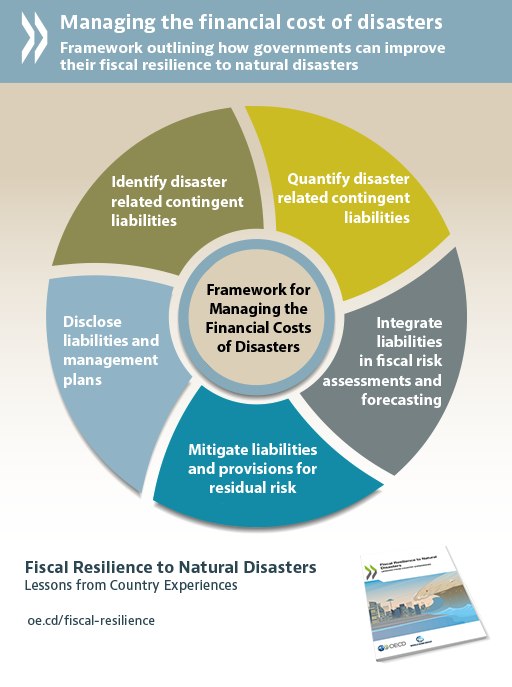Environment

Fiscal Resilience to Natural Disasters
Lessons from Country Experiences
Natural disasters continue to cause widespread damage and losses, with fast growing
economies particularly exposed. Governments often shoulder a significant share of
the costs of disaster recovery and reconstruction. This is true in OECD countries
and even more so in developing economies, where private insurance markets are not
as well developed. The fiscal impact of disasters on a government’s budget can be
sizeable. Expenditures for the government arise from both explicit and implicit commitments
to compensate for disaster losses. This report presents the results of a study that
compares country practices in the management of the financial implications of disasters
on government finances for a set of OECD member and partner countries particularly
exposed to natural hazards.
Published on May 20, 2019
TABLE OF CONTENTS
| Foreword | |
| Acronyms and abbreviations | |
| Executive Summary | |
| Introduction | |
|
Synthesis3 chapters available
|
|
Powered by OECD iLibrary
